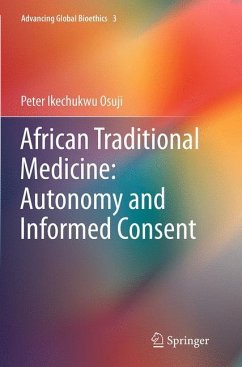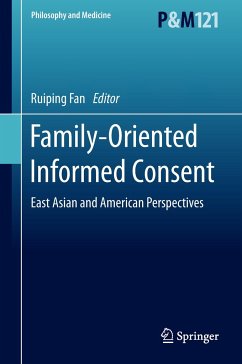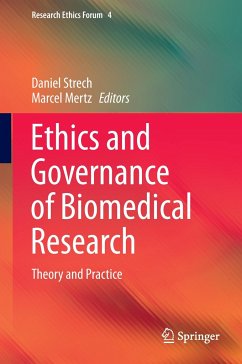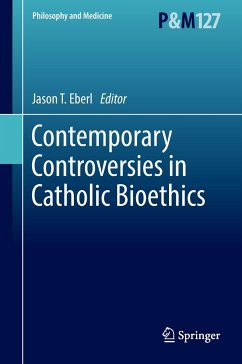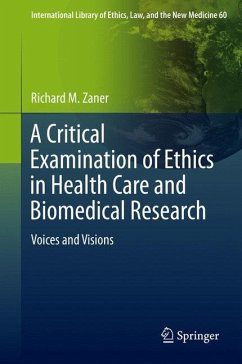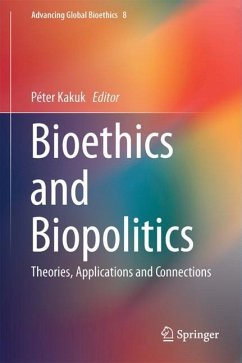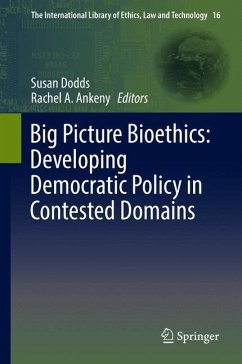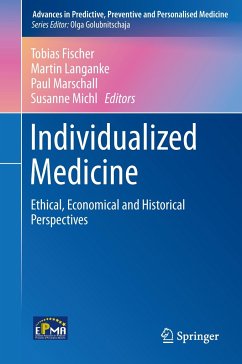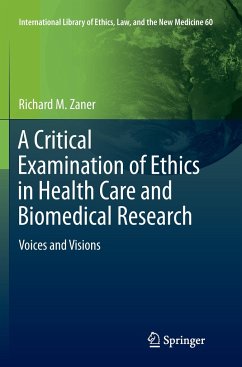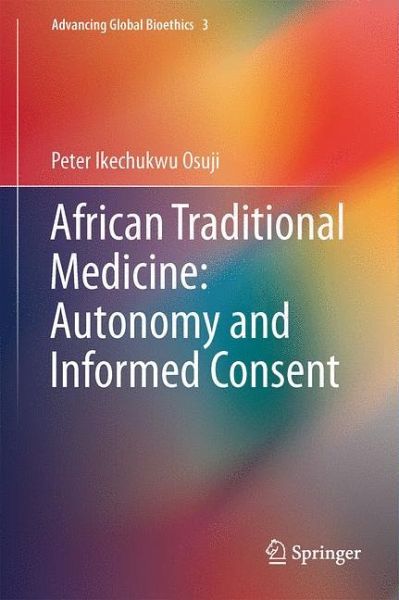
African Traditional Medicine: Autonomy and Informed Consent
Versandkostenfrei!
Versandfertig in 6-10 Tagen
98,99 €
inkl. MwSt.
Weitere Ausgaben:

PAYBACK Punkte
49 °P sammeln!
This book focuses on informed consent in African Traditional Medicine (ATM). ATM forms a large portion of the healthcare systems in Africa. WHO statistics show that as much as 80% of the population in Africa uses traditional medicine for primary health care. With such a large constituency, it follows that ATM and its practices should receive more attention in bioethics. By comparing the ethics of care approach with the ATM approach to Relational Autonomy In Consent (RAIC), the authors argue that the ATM focus on consent based on consensus constitutes a legitimate informed consent. This book is...
This book focuses on informed consent in African Traditional Medicine (ATM). ATM forms a large portion of the healthcare systems in Africa. WHO statistics show that as much as 80% of the population in Africa uses traditional medicine for primary health care. With such a large constituency, it follows that ATM and its practices should receive more attention in bioethics. By comparing the ethics of care approach with the ATM approach to Relational Autonomy In Consent (RAIC), the authors argue that the ATM focus on consent based on consensus constitutes a legitimate informed consent. This book is distinctive insofar as it employs the ethics of care as a hermeneutic to interpret ATM. The analysis examines the ethics of care movement in Western bioethics to explore its relational approach to informed consent. Additionally, this is the first known study that discusses healthcare ethics committees in ATM.




